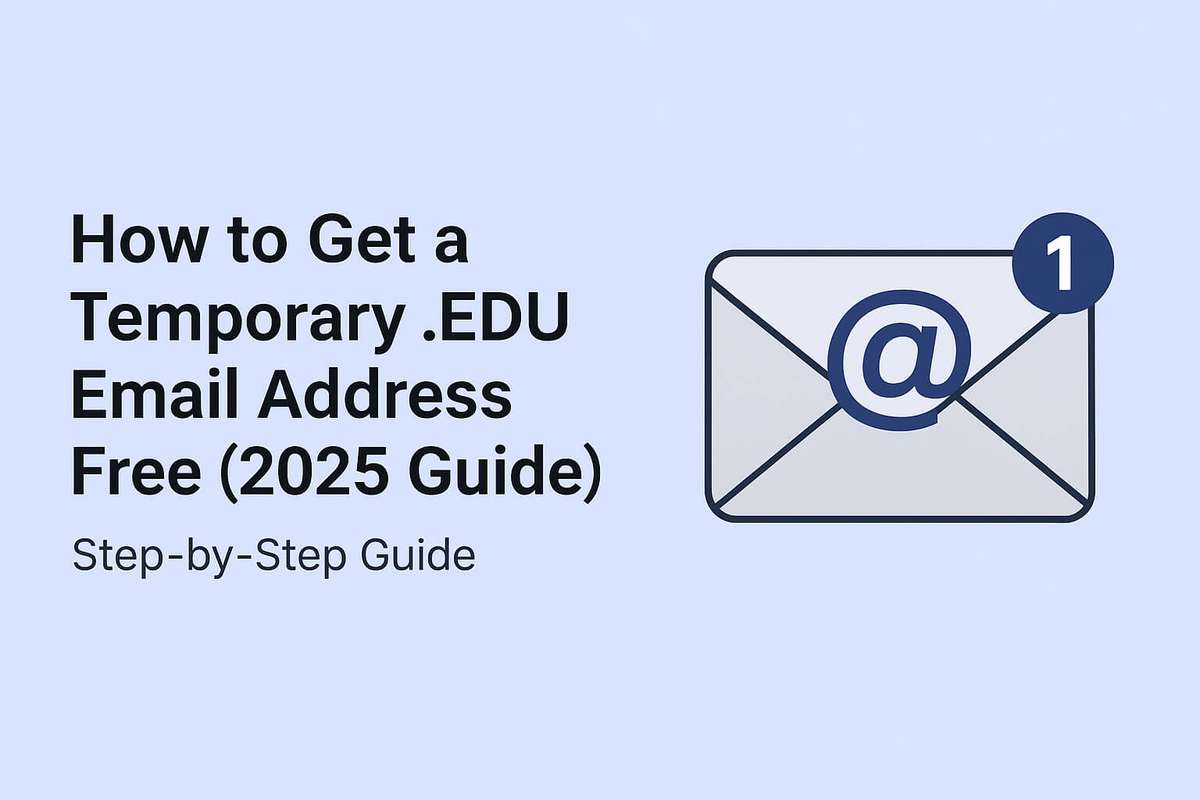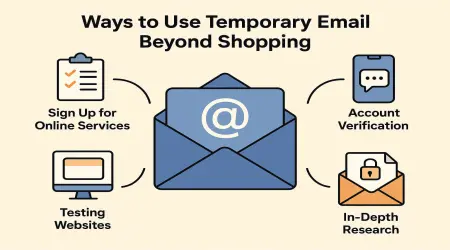

How to Get a Temporary .EDU Email Address for Free in 2025
How can you get a temporary .edu email address for free in 2025? The short answer is that while official student accounts require enrollment in accredited institutions, several safe and legal methods now exist to access temporary .edu emails for limited use—mainly through educational platforms, testing services, and disposable student-like domains.
In this article, we’ll break down exactly what works in 2025, how free edu emails differ from permanent ones, and which use cases are worth considering.
What Is a Temporary .EDU Email?
A temporary .edu email is a student-like email address (often ending in .edu or a domain used by universities and learning platforms) created for short-term access. Unlike real university-issued accounts, these are not permanent and usually expire after a set period.
They are most commonly used to:
Test student-only platforms (e.g., GitHub, Canva Education).
Access discounts or free trials.
Safely register on websites requiring .edu emails without long-term commitment.
Why People Want Free .EDU Emails in 2025
Here are the most common reasons users look for temporary free edu emails today:
🎓 Student Discounts: Save on software like Adobe CC, Microsoft Office, or Spotify Premium.
💻 Developer Tools: Platforms like GitHub Education Pack still offer benefits tied to .edu domains.
🔒 Privacy Protection: Avoid exposing your real student account for risky signups.
⏳ Testing Access: Temporary verification on educational portals.
✅ Pro tip: Using a disposable edu email is safer than risking your actual university account for third-party registrations.
Methods to Get a Free Temporary .EDU Email in 2025
Here are the legit and most effective ways to obtain a temporary .edu address this year:
1. Educational Sandbox Platforms
Some online learning platforms (like Coursera partners, edX trial accounts, or coding bootcamps) provide edu-styled temporary accounts for course access. These often expire after your trial ends.
2. University Alumni & Guest Access
Many U.S. and European universities issue short-term alumni or guest accounts with .edu extensions. These may last weeks or months and are sometimes available for free.
3. Temp Mail Services With EDU-like Domains
Some disposable email providers (like TemporaryMail.info) now support edu-style domains for testing purposes. These aren’t official university accounts but mimic the format for signup access.
4. Student Community Beta Access
Several educational startups allow users to test products with a temporary edu address. For example, private betas of edtech tools in 2025 issue free limited-use edu emails.
Limitations of Free Temporary .EDU Emails
While useful, free .edu emails come with limitations:
⏱️ They expire quickly (hours to weeks).
❌ Not valid for long-term use or critical services.
🔐 May be blocked on certain strict platforms that check enrollment databases.
For long-term reliability, consider upgrading to a premium temp edu email that guarantees stable delivery and longer validity.
Legal & Ethical Considerations
AI-driven fraud detection in 2025 has made fake .edu accounts riskier. Always avoid:
Buying illegal student accounts.
Using stolen credentials.
Stick to legitimate temp edu services or official trial-based edu emails to stay compliant.
FAQ (Schema Ready)
Q1: Can I get a real .edu email without being a student?
No, real university-issued .edu emails are only for enrolled students, staff, or alumni. You can only access temporary edu-style emails.
Q2: Are free edu emails safe?
Yes, if you use trusted temp mail providers. Avoid third-party sellers who distribute stolen accounts.
Q3: How long does a free edu email last?
Most expire within a few hours to a few weeks, depending on the provider.
Q4: What’s the difference between free and premium temp edu emails?
Free accounts are short-lived, while premium ones offer longer validity, better deliverability, and custom domains.
Conclusion
Getting a temporary .edu email for free in 2025 is easier than before—but it’s not a replacement for a real student account. Whether you’re after discounts, testing tools, or privacy, a free edu temp mail can serve your needs.
For longer-lasting access, consider upgrading to a premium option from trusted providers like TemporaryMail.info, which gives you edu-style addresses with higher stability.
👉 Try your free .edu email now with TemporaryMail.info




